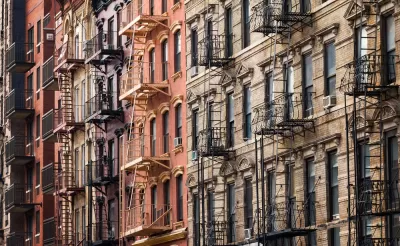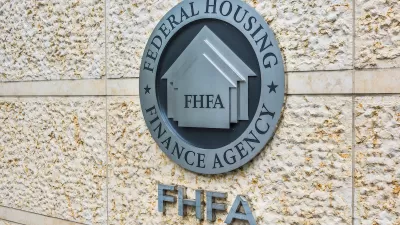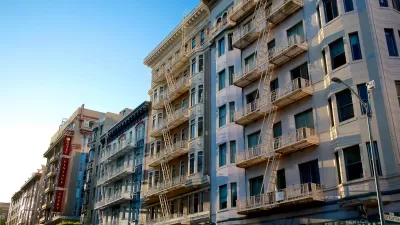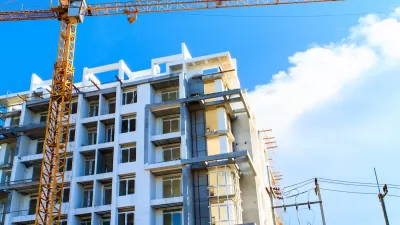Even as the city pursues new affordable housing, lax enforcement of rental regulations is leading to rising costs and evictions.

Like other big cities facing affordable housing crises, New York is steadily losing its supply of rent-stabilized units to deregulation. And, Daniel Geiger writes for Crain's New York, systemic fraud may play a substantial role in that decline.
Recent audits by the city and class-action lawsuits against major landlords reveal a pattern of dubious renovation expenses that enable property owners to raise prices on rent-stabilized apartments, Geiger reports. Over the past 26 years, around 167,000 rent-stabilized units—that officials know of—have been deregulated, fraudulently or not, through programs that allow for rent increases. "That's roughly 50,000 units more than Mayor Bill de Blasio's signature affordable-housing initiative aims to create over 12 years," Geiger notes.
In New York, laws permitting landlords to cover major repair costs by raising rents above regulated levels were enacted in the 1970s to encourage property maintenance. But most cities don't have systematic or proactive enforcement, relying on tenant complaints and lawsuits to bring violations to light. As a result, fraud is rampant: “Loopholes and lax oversight practically invite owners to pull units out of regulation," Geiger writes. Or as one attorney put it: "You have to be nuts not to be breaking the law, because the chances of getting caught are so slim."
FULL STORY: Landlords are exploiting a key loophole to raise rents on thousands of apartments

Planetizen Federal Action Tracker
A weekly monitor of how Trump’s orders and actions are impacting planners and planning in America.

San Francisco's School District Spent $105M To Build Affordable Housing for Teachers — And That's Just the Beginning
SFUSD joins a growing list of school districts using their land holdings to address housing affordability challenges faced by their own employees.

The Tiny, Adorable $7,000 Car Turning Japan Onto EVs
The single seat Mibot charges from a regular plug as quickly as an iPad, and is about half the price of an average EV.

Seattle's Plan for Adopting Driverless Cars
Equity, safety, accessibility and affordability are front of mind as the city prepares for robotaxis and other autonomous vehicles.

As Trump Phases Out FEMA, Is It Time to Flee the Floodplains?
With less federal funding available for disaster relief efforts, the need to relocate at-risk communities is more urgent than ever.

With Protected Lanes, 460% More People Commute by Bike
For those needing more ammo, more data proving what we already knew is here.
Urban Design for Planners 1: Software Tools
This six-course series explores essential urban design concepts using open source software and equips planners with the tools they need to participate fully in the urban design process.
Planning for Universal Design
Learn the tools for implementing Universal Design in planning regulations.
Smith Gee Studio
City of Charlotte
City of Camden Redevelopment Agency
City of Astoria
Transportation Research & Education Center (TREC) at Portland State University
US High Speed Rail Association
City of Camden Redevelopment Agency
Municipality of Princeton (NJ)





























